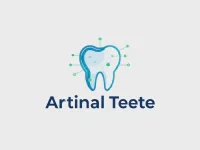The Ultimate Guide to Prescription Dog Food for Allergies

Prescription Dog Food for Allergies: Understanding and Managing Canine Allergies
If your dog suffers from allergies, you know how challenging it can be to find the right solution. Prescription dog food for allergies is a specialized dietary option that can help alleviate your dog's symptoms and improve their overall health. In this comprehensive article, we will explore the causes of canine allergies, the different types of prescription dog food available, the best brands to consider, and essential tips for managing canine allergies effectively.
Before diving into the details of prescription dog food, it's essential to understand the causes of canine allergies. Allergies in dogs can be triggered by environmental factors, food allergies, or seasonal allergies.
Environmental factors such as pollen, dust mites, and mold can cause allergic reactions in dogs. These allergens can lead to symptoms like itching, redness, and skin irritation. Identifying and reducing exposure to these environmental allergens is crucial in managing your dog's allergies.
Food allergies are another common cause of canine allergies. Certain ingredients in commercial dog food, such as beef, chicken, wheat, and soy, can trigger allergic reactions. Prescription dog food for allergies often contains hydrolyzed protein or limited ingredient formulas that are free from common allergens.
If you're looking for the best dog food for allergies, this guide is a must-read.
Seasonal allergies, also known as atopic dermatitis, are triggered by environmental factors, such as grass, pollen, or tree allergens. Dogs with seasonal allergies often experience intense itching, redness, and hair loss. Prescription dog food, along with other treatments, can help alleviate these symptoms and provide relief.
Causes of Canine Allergies
Environmental factors play a significant role in canine allergies. Pollen, dust mites, and mold can trigger allergic reactions in dogs, leading to symptoms like itching, redness, and skin irritation. To manage environmental allergies, it's essential to keep your dog's environment clean and minimize exposure to these allergens.
Food allergies can cause a range of symptoms, including digestive issues, itching, and skin problems. Identifying the specific ingredient causing the allergy can be challenging. Prescription dog food for allergies often utilizes hydrolyzed protein or limited ingredient formulas to eliminate common allergens and provide balanced nutrition.
Seasonal allergies in dogs are similar to those in humans. Dogs can be allergic to environmental factors like grass, pollen, or tree allergens, leading to intense itching, redness, and hair loss. Regular grooming, avoiding allergenic areas, and using prescription dog food can help manage seasonal allergies effectively.
Types of Prescription Dog Food
Hydrolyzed protein dog food is specifically designed for dogs with food allergies. The protein in the food is broken down into smaller, hypoallergenic molecules, reducing the risk of an allergic reaction. This type of prescription dog food is highly digestible and provides essential nutrients while minimizing potential allergens.
Limited ingredient dog food eliminates common allergens such as beef, chicken, wheat, and soy. These diets often contain a single novel protein source and a limited number of easily digestible carbohydrates. By simplifying the ingredients, limited ingredient dog food reduces the risk of triggering allergic reactions.
Novel protein dog food is formulated with exotic protein sources that your dog may not have been exposed to previously. This type of prescription diet is beneficial for dogs with known food allergies as it minimizes the chance of a reaction to familiar proteins. Novel protein dog food provides essential nutrition while avoiding common allergenic ingredients.
Best Prescription Dog Food Brands
Royal Canin Veterinary Diet offers a range of prescription dog food options for allergies. Their formulas include hydrolyzed protein diets and limited ingredient diets. Their products are designed to provide complete and balanced nutrition while addressing specific dietary needs.
Hill's Prescription Diet is another reputable brand known for its prescription dog food for allergies. They offer a variety of formulas, including hydrolyzed protein diets and limited ingredient diets. Hill's Prescription Diet focuses on providing high-quality nutrition and ensuring the well-being of dogs with allergies.
Purina Pro Plan Veterinary Diets offers prescription dog food options that cater to various health conditions, including allergies. Their formulas are developed with hydrolyzed proteins or limited ingredients to minimize allergenic reactions. Purina Pro Plan Veterinary Diets is committed to providing specialized nutrition for dogs with specific dietary needs.
Blue Buffalo Natural Veterinary Diet is a trusted brand in the pet food industry. They offer prescription dog food options that prioritize natural ingredients and provide tailored nutrition for dogs with allergies. Blue Buffalo Natural Veterinary Diet offers limited ingredient diets and hydrolyzed protein diets to address various allergy concerns.
Tips for Managing Canine Allergies
Regular veterinary check-ups are crucial in managing canine allergies effectively. Your veterinarian can help identify the allergens that trigger your dog's symptoms and recommend appropriate treatments and dietary changes.
Avoiding allergens is key in managing your dog's allergies. Whether it's dust mites, certain foods, or outdoor allergens, minimizing exposure can significantly reduce symptoms. Keep your dog's living areas clean, use allergen-proof bedding, and avoid known allergenic substances.
Providing proper nutrition is essential for dogs with allergies. Prescription dog food offers balanced nutrition while eliminating common allergens. Ensure that your dog's diet meets their specific dietary needs and supports their overall health and well-being.
Using supplements can help complement prescription diets and manage allergy symptoms. Omega-3 fatty acids, such as fish oil, can help reduce inflammation and improve skin health. Probiotics can support your dog's gut health, potentially alleviating food allergies.
Transitioning to Prescription Diet
When transitioning your dog to a prescription diet, it's important to do so gradually. Sudden dietary changes can cause digestive upset. Start by mixing a small amount of the new food with their current food and gradually increase the ratio over a week or two.
Monitor any changes in your dog's health and behavior during the transition period. Note any improvements or new symptoms that may arise. This information will be valuable for your veterinarian in adjusting the prescription diet if needed.
Seek guidance from your veterinarian throughout the transition process. They can provide personalized advice based on your dog's specific needs. Your veterinarian will also monitor your dog's progress and make any necessary adjustments to the prescription diet.
